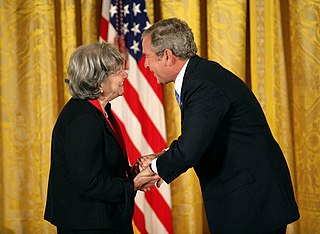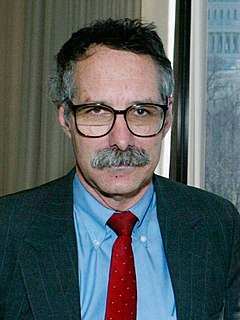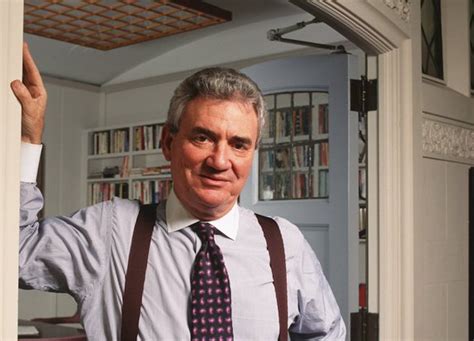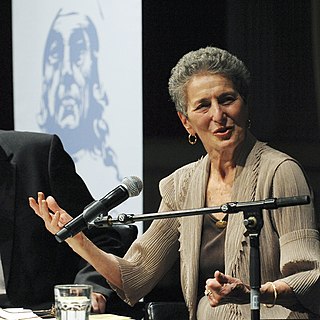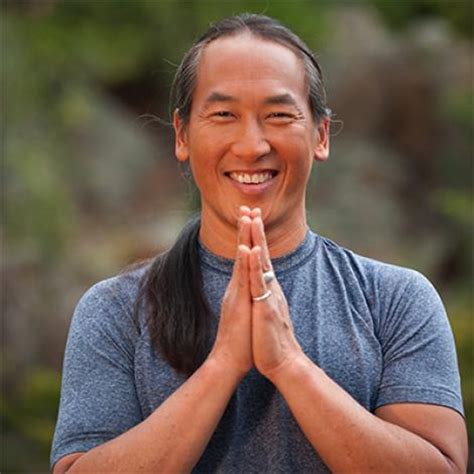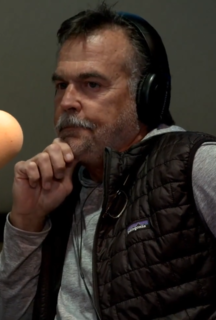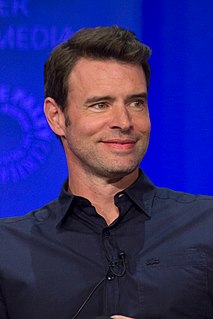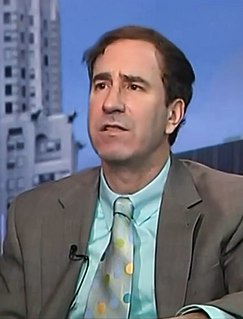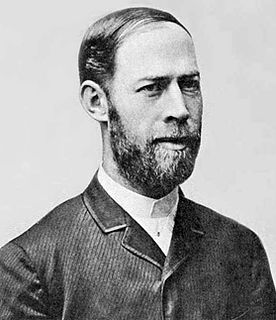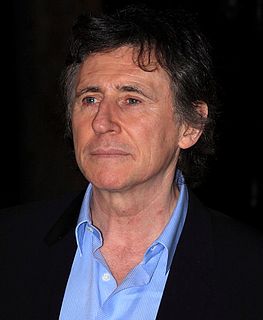Top 1200 Most Philosophical Quotes & Sayings - Page 20
Explore popular Most Philosophical quotes.
Last updated on April 15, 2025.
Women's liberation, if not the most extreme then certainly the most influential neo-Marxist movement in America, has done to the American home what communism did to the Russian economy, and most of the ruin is irreversible. By defining relations between men and women in terms of power and competition instead of reciprocity and cooperation, the movement tore apart the most basic and fragile contract in human society, the unit from which all other social institutions draw their strength.
One intriguing subplot of the economic crisis is the failure of most economists to predict it. Here we have the most spectacular economic and financial crisis in decades - possibly since the Great Depression - and the one group that spends most of its waking hours analyzing the economy basically missed it.
I can write any kind of novel I want, any time, and sell it, but there's not that many people watching it. Even a low-rated TV show is a couple million more people than read my books. You want to be read, in essence. If you're a television writer, you're a writer and you want people to read your stuff. You're still reaching a bigger audience, that way. That's a philosophical way to look at it.
Only one time in my career I had that feeling [that this is not gonna get made], it was for this movie [Life of Pi]. It was right before we started the physical pre-production. I pre-visualized the whole ocean part before we made the movie, I was that prepared. At one point they seemed to want to drop it because it was really risky. The budget we proposed was a lot higher than they expected, they wanted to [drop it]. After all, it's a philosophical book and a literature property, it's not Batman.
Have not all theists painted their Deity as the god of love and goodness? Yet after thousands of years of such preachments the gods remain deaf to the agony of the human race. Confucius cares not for the poverty, squalor and misery of the people of China. Buddha remains undisturbed in his philosophical indifference to the famine and starvation of outraged Hindoos; Jahve continues deaf to the bitter cry of Israel; while Jesus refuses to rise from the dead against his Christians who are butchering each other.
It is a view of God that compensates every thing else, and enables the soul to rest in His bosom. How, when the child in the night screams with terror, hearing sounds that it knows not of, is that child comforted and put to rest? Is it by a philosophical explanation that the sounds were made by the rats in the partition? Is it by imparting entomological knowledge? No; it is by the mother taking the child in her lap, and singing sweetly to it, and rocking it. And the child thinks nothing of the explanation, but only of the mother.
In mortals there is a care for trifles which proceeds from love and conscience, and is most holy; and a care for trifles which comes of idleness and frivolity, and is most base. And so, also, there is a gravity proceeding from thought, which is most noble; and a gravity proceeding from dulness and mere incapability of enjoyment, which is most base.
Carla Hesse has given us an astonishing new look at women's struggle for independent expression and moral autonomy during the French Revolution and afterward. Denied the political and civil rights of men, literary women plunged into the expanded world of publication, answering the men's philosophical treatises with provocative novels about women's choices and chances. Lively and learned, The Other Enlightenment links women from Madame de Stael to Simone de Beauvoir in an alternate and daring path to the modern.
It is odd that a value/virtue that plays such a central role in dramatic literature has played such a small role in philosophical writing. There are probably a number of reasons, but I think that a predilection for a certain kind of individualism is a major one. Others might include the fashionability of consequentialism, the idea that loyalty has more to do with sentiment than reason, as well as its proneness to corruption. The revival of interest in virtue/character as distinct from rules/principles has also created space for a renewed, if hesitant, interest in loyalty.
Work on causal theories of knowledge - early work by Armstrong, and Dretske, and Goldman - seemed far more satisfying. As I started to see the ways in which work in the cognitive sciences could inform our understanding of central epistemological issues, my whole idea of what the philosophical enterprise is all about began to change. Quine certainly played a role here, as did Putnam's (pre-1975) work in philosophy of science, and the exciting developments that went on in that time in philosophy of mind.
It had occurred to Sean once - on a bender about ten years before with some buddies, Sean and a bloodstream full of bourbon turning philosophical - that maybe they HAD gotten in that car. All three of them. And what they now thought of as their life was just a dream state. That all three of them were, in reality, still eleven-year-old boys trapped in some cellar, imagining what they'd become if they ever escaped and grew up.
Yoga is an ancient discipline in which physical postures, breath practice, meditation, and philosophical study are tools for achieving liberation. In my interpretation, achieving liberation in yoga means learning how to be present with everything that arises, whether it is pain or pleasure, sadness or joy, failure or success. And to be present with whatever arises, I believe we must not only be aware of what is arising but we must also be able to see all things that arise as equal, with detachment.
Judo has been part of Japanese culture for a long time. It makes sense to me that this sport, which is both athletic and philosophical, was created in Japan. It is based on respect for the partner and for our elders as our teachers, which is very important and makes a strong, positive contribution to human relationships, and not only in sports. I am happy that life brought me to this wonderful sport as a child. It is like my first love.
If our age in its pride laughs at and rejects Our Lady's Rosary, a countless legion of the most saintly men of every age and of every condition have not only held it most dear and have most piously recited it but have also used it at all times as a most powerful weapon to overcome the devil, to preserve the purity of their lives, to acquire virtue more zealously, in a word, to promote peace among men.
Does the unmistakeable intent of Versailles to proclaim dominion over nature destroy its aesthetic appeal, as Schopenhauer thought? Does the greenness of the lawn lose its allure when we learn how much water, sorely needed elsewhere, it uses? And historical shifts in garden taste - from formal, 'French' gardens to 'Capability' Brown's landscapes, for instance, or from the elaborate gardens of imperial Kyoto to Zen 'dry' gardens - register important changes in philosophical or religious attitudes.
Thinking in terms of risk certainly has its unsettling aspects (...), but it is also a means of seeking to stabilise outcomes, a mode of colonising the future. The more or less constant, profound and rapid momentum of change characteristic of modern institutions, coupled with structured reflexivity, mean that on the level of everyday practice as well as philosophical [Seitenwechsel] interpretation, nothing can be taken for granted. What is acceptable/appropriate/recommended behaviour today may be seen differently tomorrow in the light of altered circumstances or incoming knowledge-claims.
The K.I.S.S. (Keep It Simple, Stupid) principle was pounded into my head in school and I still follow it today in most of my designs. I know that my most successful efforts are the simplest. I always find myself trying to subtract detail from design concepts in an attempt to distill the idea down to the most basic communication tool.
Common sense is not something rigid and stationary, but is in continuous transformation, becoming enriched with scientific notions and philosophical opinions that have entered into common circulation. 'Common sense' is the folklore of philosophy and always stands midway between folklore proper (folklore as it is normally understood) and the philosophy, science, and economics of the scientists. Common sense creates the folklore of the future, a relatively rigidified phase of popular knowledge in a given time and place.
As is well known, the priests are the most evil enemies—but why? Because they are the most impotent. It is because of their impotence that in them hatred grows to monstrous and uncanny proportions, to the most spiritual and poisonous kind of hatred. The truly great haters in world history have always been priests; likewise the most ingenious haters: other kinds of spirit hardly come into consideration when compared with the spirit of priestly vengefulness.
There is a form of poetic and esthetic and moral genius necessary to make philosophical issues truly incandesce for students, and even though I indeed had some world-class professors myself when I went through the curriculum, I rarely saw such gnosic or concretist/poetic passion among them. I am not speaking of broad histrionics or melodramatic delivery, but rather a moral investment of concern, of loving delight and pathos in exposing one's consciousness to the full horrific and magnificent implications of the materials.
No government has the right to decide on the truth of scientific principles, nor to prescribe in any way the character of the questions investigated. Neither may a government determine the aesthetic value of artistic creations, nor limit the forms of literacy or artistic expression. Nor should it pronounce on the validity of economic, historic, religious, or philosophical doctrines. Instead it has a duty to its citizens to maintain the freedom, to let those citizens contribute to the further adventure and the development of the human race.
Man's quest for knowledge is an expanding series whose limit is infinity, but philosophy seeks to attain that limit at one blow, by a short circuit providing the certainty of complete and inalterable truth. Science meanwhile advances at its gradual pace, often slowing to a crawl, and for periods it even walks in place, but eventually it reaches the various ultimate trenches dug by philosophical thought, and, quite heedless of the fact that it is not supposed to be able to cross those final barriers to the intellect, goes right on.
Government has coddled, accepted, and ignored white collar crime for too long. It is time the nation woke up and realized that it's not the armed robbers or drug dealers who cause the most economic harm, it's the white collar criminals living in the most expensive homes who have the most impressive resumes who harm us the most. They steal our pensions, bankrupt our companies, and destroy thousands of jobs, ruining countless lives.
Socrates, whose mother was a midwife, used to say that his art was like the art of the midwife. She does not herself give birth to the child, but she is there to help during its delivery. Similarly, Socrates saw his task as helping people to 'give birth' to correct insight, since real understanding must come from within. . . . Everybody can grasp philosophical truths if they just use their innate reason.
Because Christian morality leaves animals out of account, they are at once outlawed in philosophical morals; they are mere 'things,' mere means to any ends whatsoever. They can therefore be used for vivisection, hunting, coursing, bullfights, and horse racing, and can be whipped to death as they struggle along with heavy carts of stone. Shame on such a morality that is worthy of pariahs, and that fails to recognize the eternal essence that exists in every living thing, and shines forth with inscrutable significance from all eyes that see the sun!
As a pastor, I addressed the sorts of issues I see people struggling with most and the issues talked about most directly and most frequently in the New Testament. That leads us to recurring concerns with sexual immorality, relational sins, and vices associated with the breaking of the Ten Commandments.
There can be no question of selecting in any direction, but of penetrating the whole cosmic law of rhythms, forces and material that are the real world, from the ugliest to the most beautiful, everything that has character and expression, from the crudest and most brutal to the gentlest and most delicate; everything that speaks to us in its capacity as life.
Evolution is a theory in a special philosophical sense of science, but in terms of ordinary laymen's use of language, it's a fact, .. Evolution is a fact in the same sense that it's a fact that the Earth is round and not flat, [that] the Earth goes round the Sun. Both those are also theories, but they're theories that have never been disproved and never will be disproved.
The aim of every political Constitution, is or ought to be first to obtain for rulers men who possess most wisdom to discern, and most virtue to pursue, the common good of society; and in the next place, to take the most effectual precautions for keeping them virtuous whilst they continue to hold their public trust.
Maybe philosophical problems are hard not because they are divine or irreducible or meaningless or workaday science, but because the mind of Homo sapiens lacks the cognitive equipment to solve them. We are organisms, not angels, and our minds are organs, not pipelines to the truth. Our minds evolved by natural selection to solve problems that were life-and-death matters to our ancestors, not to commune with correctness ot to answer any question we are capable of asking.
If you thought you were trying to find out more about it because you're gonna get an answer to some deep philosophical question...you may be wrong! It may be that you can't get an answer to that particular question by finding out more about the character of nature. But my interest in science is to simply find out about the world.
We shall be remembered in history as the most cruel, and therefore the most unwise, generation of men that ever yet troubled the earth: the most cruel in proportion to their sensibility, the most unwise in proportion to their science. No people, understanding pain, ever inflicted so much: no people, understanding facts, ever acted on them so little.
In my work I now have the comfortable feeling that I am so to speak on my own ground and territory and almost certainly not competing in an anxious race and that I shall not suddenly read in the literature that someone else had done it all long ago. It is really at this point that the pleasure of research begins, when one is, so to speak, alone with nature and no longer worries about human opinions, views and demands. To put it in a way that is more learned than clear: the philological aspect drops out and only the philosophical remains.
The difficulty in our education up till now lies, for the most part, in the fact that knowledge did not refine itself into will, to application of itself, to pure practice. The realists felt the need and supplied it, though in a most miserable way, by cultivating idea-less and fettered "practical men." Most college students are living examples of this sad turn of events. Trained in the most excellent manner, they go on training; drilled they continue drilling.
This is my long-run forecast in brief: The material conditions of life will continue to get better for most people, in most countries, most of the time, indefinitely. Within a century or two, all nations and most of humanity will be at or above today's Western living standards. I also speculate, however, that many people will continue to think and say that the conditions of life are getting worse.
